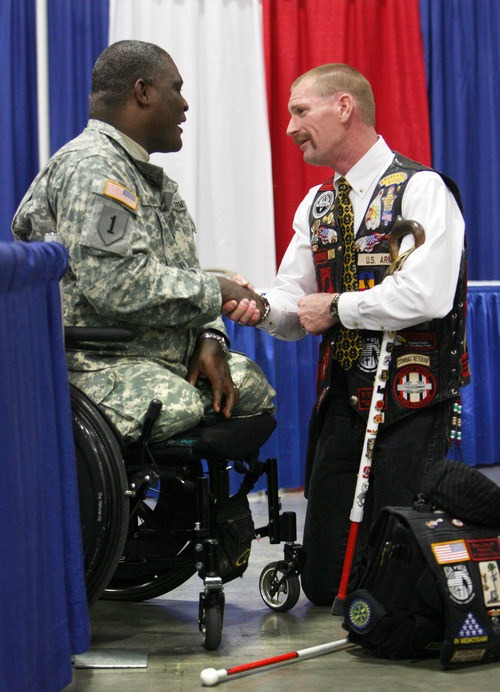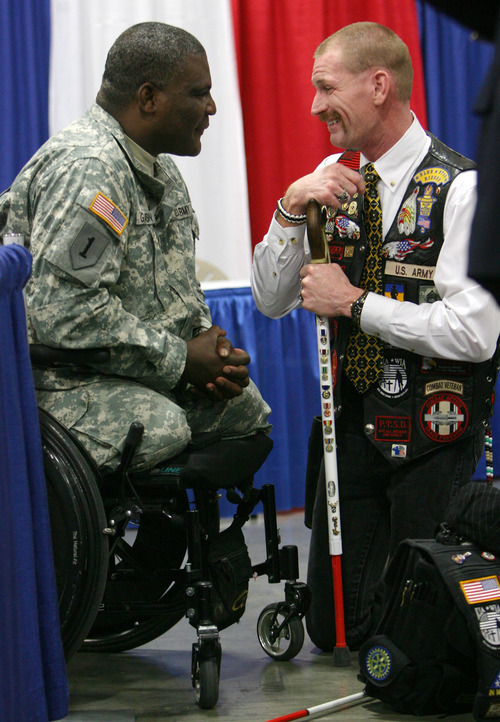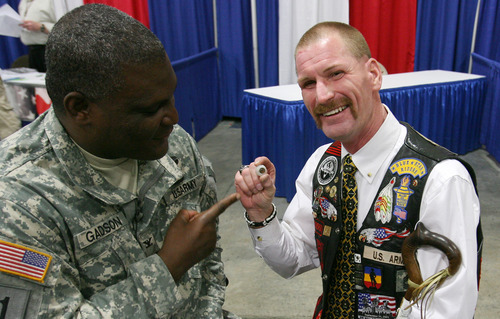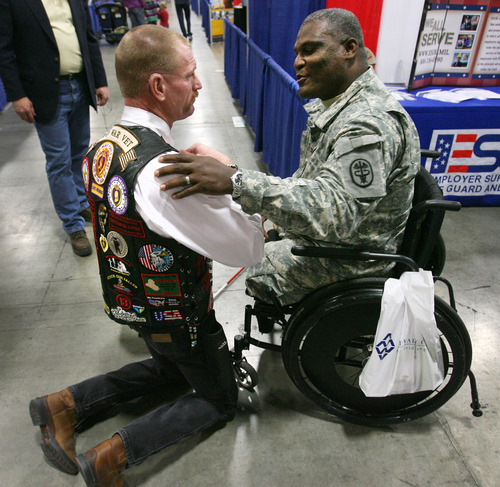This is an archived article that was published on sltrib.com in 2012, and information in the article may be outdated. It is provided only for personal research purposes and may not be reprinted.
Justin Watt, an Iraq war veteran, felt he had landed on another planet when he came back to America.
"You go from playing high-stakes poker and doing stuff that matters," to dealing with clueless civilians, said Watt, who was on a Friday panel telling social workers and therapists what it's like to return from war.
The discussion was one of more than 30 sessions at the Utah Veterans and Families Summit, which itself was part of the three-day Generations conference put on by the University of Utah Neuropsychiatric Institute. A job fair for veterans was also part of the summit at the Calvin L. Rampton Salt Palace Convention Center in Salt Lake City.
The disconnect that warriors feel was the focus of the panel, led by psychologists at the Veterans Affairs George E. Wahlen Medical Center who work with vets who have post-traumatic stress disorder (PTSD) and moral injury.
That's the name used to describe the suffering many vets have over what they did or did not do in war.
In Iraq, Watt said, "I needed to keep my guys alive and myself alive and hunt down the Number 2 targeted guy in al-Qaida." Abu Musab al-Zarqawi was killed in a U.S. military airstrike in 2006. Watt was in the 101st Airborne, which was part of the mission to get al-Zarqawi.
Back home, Watt's job at a buddy's Salt Lake City computer company put him in the cross hairs of angry customers.
"I come home and guys are screaming at me because their computer has been out of their hands for eight hours," said Watt. "You just want to choke them."
Vets with PTSD often are angry, but it's complicated by the fact they are trained, as warriors, to use anger, said Tanya Miller, a VA psychologist.
"They are trained to turn fear into anger and anger into action," she said.
Warriors also are trained to suppress compassion, horror, tenderness and grief, she said.
And that, said Marine John Angell, has an effect.
"You turn into a cold-hearted son of a bitch," said Angell, who was in the infantry for four years, and in intelligence for two.
"You can't show weakness, you can't show emotions. You would talk about 'I did this person, I shot this person, how sweet was that?' It wasn't until later you thought, 'I just killed a kid, I just killed a woman.'
"The more and more you do it, you become calloused," Angell said. "It's like putting on your shoes."
That's where moral injury comes in. It's not yet a diagnosis, but it's a disabling effect of war, and it's increasingly the subject of research, said Ashley Greenwell, a VA psychologist. The Marines reject the label, preferring "inner turmoil" or "inner conflict," she added.
"Sometimes the main reason [vets] come in to talk to us is feelings of guilt," she said. "It's the inner turmoil of having to make difficult moral decisions."
Army vet Bruce Sperry said his first inkling of moral injury came early in his 30-year career, when he saw the battered remains of a human that had repeatedly been run over by military trucks. He wondered why no one cared enough to move the remains.
"We all relieved ourselves and got on the truck and drove away," Sperry said. "I left him there. I also didn't care enough to pull the remains off the road. The moral injury begins as subtly as that."









